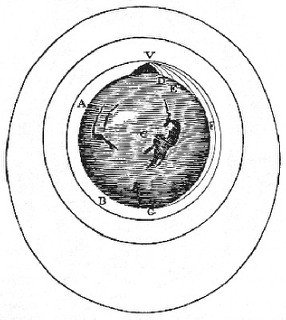The explorer is 4'11" tall, weighs 384 lbs, and rides on six wheels.
It is the Mars Rover Spirit. It gets its "food" from the sun. As the Martian sand builds up on its solar panels, less sunlight get through, and it "starves". At one point recently, a lucky gust of wind cleared its panels, but now they are dusty again and Mission Managers are unsure whether Spirit will make it through the cold dim Martian winter. One of Spirit's six wheels stopped turning in 2006, so they have had to drive it backwards through the sand since then. The "lame leg" digs a trench wherever it goes. It just happened to uncover a patch of white silica, the stuff of window glass.
"It could have come from either a hot-spring environment or an environment called a fumarole, in which acidic steam rises through cracks. On Earth, both of these types of settings teem with microbial life."
This was originally announced in May of 2007, but the conclusion has been bolstered by the finding that a rock called "Innocent Bystander" has an interior rich in silica and is probably thus a
siliceous sinter.
While I am fascinated with these hints that ancient Mars may have been more hospitable to life, that's not what I wanted to stress in this post. I anthropomorphized Spirit to make a point. We respond viscerally to humans meeting challenges. (Actually, the public was quite interested in the Mars rovers when they landed, which surprised me. But that interest has faded.) If there were a human whose survival on Mars was in doubt, it would be the top story on every news outlet (and rightly so). If a human had dug up the silica, we'd be hearing all about her personal history and idiosyncrasies.
Humans are also much more adept than a robot in a setting, like Mars, where autonomous actions are required. A human could probably do the work the rovers have performed in a few days.
BUT, human space travel is very expensive. It would cost many, many more times the rover program to get a human to and from Mars (perhaps as much as a few months of the Iraq war). When the human part of the space program is expanded, other programs suffer, and there is often less science done.
Further, robotic vehicles are becoming more and more sophisticated. They may be all we need to accomplish our scientific goals.
So, until we are willing to commit the resources for both an intensive robotic science program and an expensive human space flight program, I think we should concentrate on sending robots, not humans.
[confidence level: likely, my qualifications: informed]







